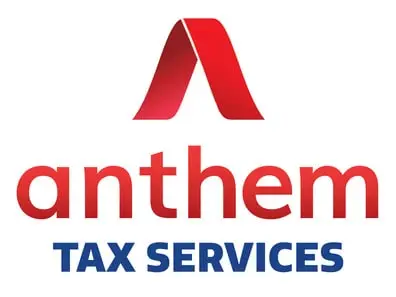
The IRS can investigate any finances if they believe you are a taxpayer withholding assets. One tool they use to assess this would be a bank summons. This document requires your bank to send your account balances, bank statements, and other information directly to the IRS. Your summons will usually include a reason for the summons, the date at which the person must respond, and the name of the person in question. The IRS carries out these summons to ensure everyone is paying the total tax amount and narrow the tax gap as much as possible.
What’s a Tax Gap?
So now that you understand what a summons is and why they are carried out, it’s time to explore tax gaps and why the IRS wants to avoid them. The tax gap is the difference between the taxes that are owed and the taxes that are collected. The tax gap amounts to $600 billion yearly, exceeding $7 trillion in the last decade. The US Treasury anticipates that 1% of the wealthiest in the world evade $163 billion in taxes annually. As you can imagine, this is a bit of a problem for the IRS, and it is something that they are actively trying to combat.
Put An End to Tax Debt
We’re the experts to help you tackle IRS Tax Debt
so you can be stress-free
What Are the IRS Looking For?
If you get a summons for your bank account records, the IRS will ask to see the total money deposited over the last year. They will also want to know the total you have withdrawn over the year.
How is this Information Used?
The IRS work to compare the annual tax flow of the account holder. They will determine if you are paying the taxes you should be or if you need to go ahead and get a full audit done. Now, what else will the IRS look at? They will usually compare their data to the total amount within your tax return. The Treasury does state that the scope of their sharing this information is limited, and on top of this, they reiterate that banks are not going to share the spending they have carried out.
What Can the IRS Issue a Summons To?
The IRS can issue a summons to a company you have done business with, a business associate, or even a bank. More summons is associated with expenses, but most of the time, they tend to be associated with income. Some people find that they deduct a significant expense for rent, and if this happens, the summons will go to the landlord, where any checks that need to be carried out can be done.
Can I get a Period of Notice with my Summons?
It is essential to know that the IRS must only give notice after they summon your records. The notice will include information on how you can object to the summons. Banks who report deposits and withdrawals to the IRS may find that they get additional audits for SBOs or small business owners, even if it turns out that they are paying their taxes as they should be. An example of this would be if a business owner deposits $1,000,000 to their bank but only ends up reporting $600,000 of this. The bank, however, will report to the IRS that $1,000,000, which exposes a big difference between the two numbers reported. If this is the case, the IRS does an audit to find out where the unreported income is going. They will also want to know if you should be paying any taxes on the unreported amount. There are many reasons why you may deposit income into your account rather than report the total amount. It may be that you have deposited non-income money into your account or have taken out a loan.
Understandably, you may be nervous about the IRS looking into your records, but by working with our tax relief experts, we can ensure that you are making all the right decisions with your audit. You can also provide that you are not inadvertently breaking the law by not paying enough tax on your income. Learn more about the ins and outs of tax relief, and contact us by phone or email today.
The IRS can investigate any finances if they believe you are a taxpayer withholding assets. One tool they use to assess this would be a bank summons. This document requires your bank to send your account balances, bank statements, and other information directly to the IRS. Your summons will usually include a reason for the summons, the date at which the person must respond, and the name of the person in question. The IRS carries out these summons to ensure everyone is paying the total tax amount and narrow the tax gap as much as possible.
What’s a Tax Gap?
So now that you understand what a summons is and why they are carried out, it’s time to explore tax gaps and why the IRS wants to avoid them. The tax gap is the difference between the taxes that are owed and the taxes that are collected. The tax gap amounts to $600 billion yearly, exceeding $7 trillion in the last decade. The US Treasury anticipates that 1% of the wealthiest in the world evade $163 billion in taxes annually. As you can imagine, this is a bit of a problem for the IRS, and it is something that they are actively trying to combat.

Owe Back Taxes?
Our tax relief experts are only one phone call or form submission away…
What Are the IRS Looking For?
If you get a summons for your bank account records, the IRS will ask to see the total money deposited over the last year. They will also want to know the total you have withdrawn over the year.
How is this Information Used?
The IRS work to compare the annual tax flow of the account holder. They will determine if you are paying the taxes you should be or if you need to go ahead and get a full audit done. Now, what else will the IRS look at? They will usually compare their data to the total amount within your tax return. The Treasury does state that the scope of their sharing this information is limited, and on top of this, they reiterate that banks are not going to share the spending they have carried out.
What Can the IRS Issue a Summons To?
The IRS can issue a summons to a company you have done business with, a business associate, or even a bank. More summons is associated with expenses, but most of the time, they tend to be associated with income. Some people find that they deduct a significant expense for rent, and if this happens, the summons will go to the landlord, where any checks that need to be carried out can be done.
Can I get a Period of Notice with my Summons?
It is essential to know that the IRS must only give notice after they summon your records. The notice will include information on how you can object to the summons. Banks who report deposits and withdrawals to the IRS may find that they get additional audits for SBOs or small business owners, even if it turns out that they are paying their taxes as they should be. An example of this would be if a business owner deposits $1,000,000 to their bank but only ends up reporting $600,000 of this. The bank, however, will report to the IRS that $1,000,000, which exposes a big difference between the two numbers reported. If this is the case, the IRS does an audit to find out where the unreported income is going. They will also want to know if you should be paying any taxes on the unreported amount. There are many reasons why you may deposit income into your account rather than report the total amount. It may be that you have deposited non-income money into your account or have taken out a loan.
Understandably, you may be nervous about the IRS looking into your records, but by working with our tax relief experts, we can ensure that you are making all the right decisions with your audit. You can also provide that you are not inadvertently breaking the law by not paying enough tax on your income. Learn more about the ins and outs of tax relief, and contact us by phone or email today.


